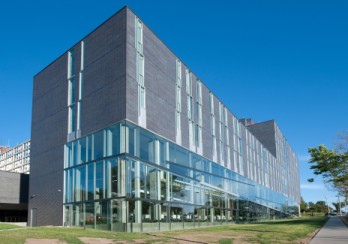University Partnering With CXtec, United Way on Electronic Upcycle Event
Do you have an old laptop, an outdated cell phone, an obsolete tablet or a forgotten printer that no longer works? Are you looking to recycle your outdated technology in a sustainable way while also giving back to the United…


 LEED (Leadership in Energy and Environmental Design) is the nation’s preeminent program for the design, construction and operation of high performance green buildings. LEED certification may be earned at the levels of certified, silver, gold and platinum.
LEED (Leadership in Energy and Environmental Design) is the nation’s preeminent program for the design, construction and operation of high performance green buildings. LEED certification may be earned at the levels of certified, silver, gold and platinum.